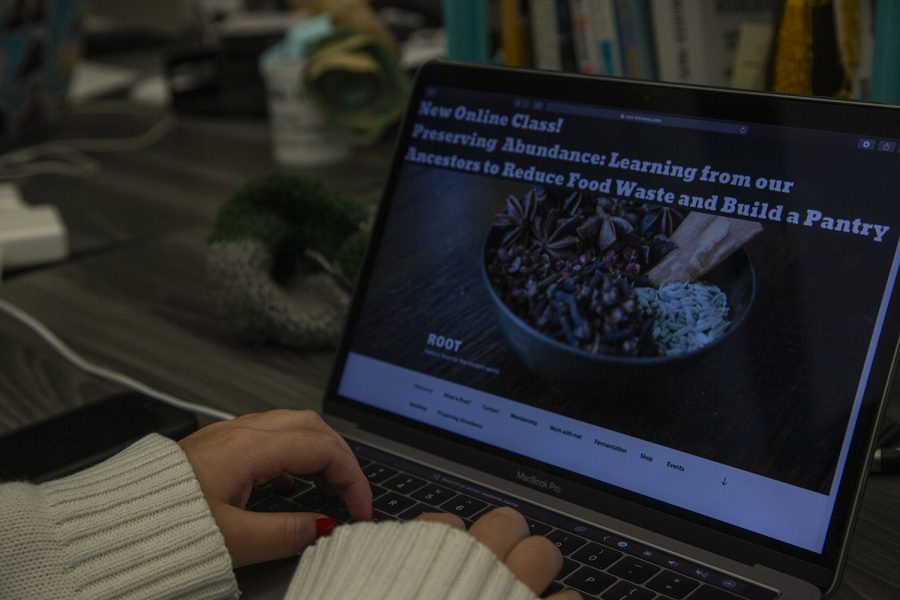University of Iowa alum creates groundbreaking food waste course
UI alum Julia Skinner recently created a food waste reduction course. The online class is designed to teach more environmentally friendly methods for cooking, regardless of age or situation.
October 7, 2019
In the heat of Atlanta, one University of Iowa alum decided she would make her mark on the world through food history and teaching others to reduce the amount of food they waste each day.
UI graduate Julia Skinner said she fell in love with the history of food through a medieval history class with Kathleen Kamerick, a former lecturer. The course led Skinner to dive into the university’s special collections and archives.
“We visited the university’s special collections as a class, and there was this book there called The English Housewife,” Skinner said. “I modernized a bunch of the recipes from the book. It was the beginning of my journey in food history, and everything pivoted around this book from special collections.”
Although the book was printed in 1615, Skinner said she immediately began digging through it and focused on it over the next two years of her studies.
Skinner pursued academia further and eventually earned her doctorate in information studies from Florida State University with a specialization in food history and fermentation. She has since started a business called Root Kitchens.
Now, Skinner has developed an online course to decrease food waste called Root. The course focuses on different forms of food waste unlike any other in-person classes or social-media tips, she said.
“I still haven’t seen anything like the [Root Kitchens] course,” she said. “There are tips on Instagram and smaller tutorials online, but there wasn’t anyone tackling it comprehensively. I wanted to create a course that was accessible to everyone.”
RELATED: UI cuts down on food waste
The current course consists of 50 people, Skinner said, and she taught specific methods for food-waste reduction in her in-person classes last year to 300 to 500 people.
Kimberly Coburn, founder of the nonprofit Homestead Atlanta, mentors Skinner. In an email to The Daily Iowan, Coburn said Skinner’s contributions to reducing food waste are incredibly important in terms of environmental impact.
“Food waste is such a significant contributor to carbon emissions, and one that can be managed in ways that simultaneously address food equity and food-justice issues,” Coburn said. “Julia’s workshop helps us understand the ways in which complete foods can be used to reduce waste. It also connects us to a food heritage in which nothing was wasted … [they] are essential to our understanding of how to eat and create with integrity and equity with our land and community.”
Jillian Ross is a colleague of Skinner’s who often hosts workshops with the food historian and said that UI and other college students should consider taking the course.
RELATED: Weisbrod: Turning food waste into energy — it’s not science fiction.
“This course is inexpensive and accessible to college students,” Ross said. “We live in a very wasteful time in a wasteful society. I think it’s important for the younger generation to know that we can go back to being resourceful within our homes and contributing less to this plastic crisis. Julia’s course creates a space for that.”
Skinner said her course is focused on preserving abundance and learning from the actions of people in the past to reduce present-day food waste. Her website specifically addresses practical guidance to assist different types of people on their educational food waste journey.
“I suggest starting small, even if you’re a college student,” Skinner said. “You need to recognize that you don’t have to do it all at once. Start with little steps and gradually waste less. That’s how you’ll be successful in wasting less.”















